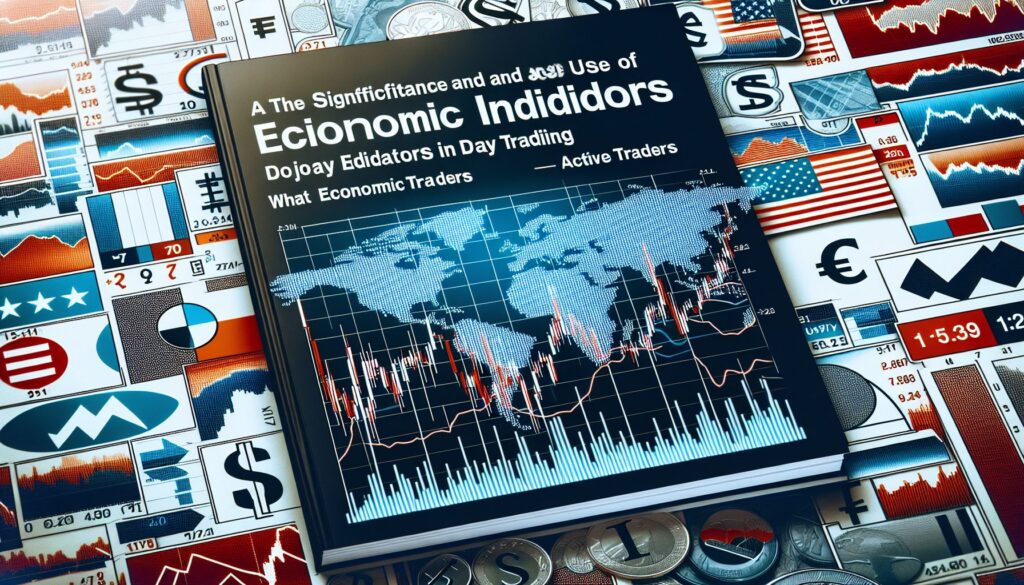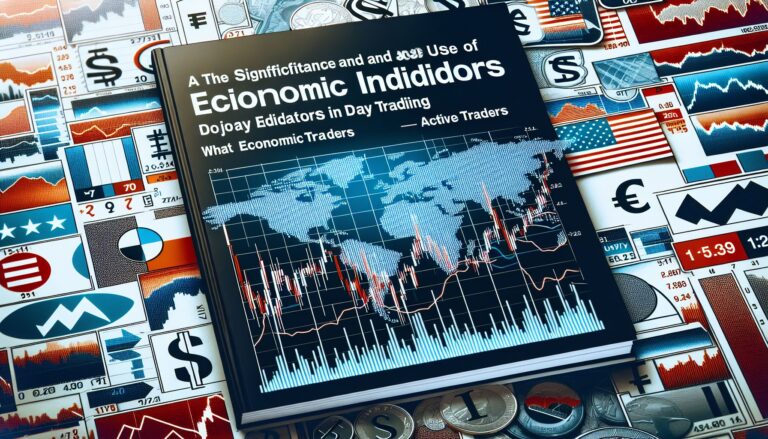The Integral Role of Economic Indicators in Day Trading: A Guide for Active Traders
Economic indicators are integral tools for active day traders. They provide important insights into the financial market conditions, influencing trading decisions, and potentially generating lucrative opportunities. This blog post aims to unravel the crucial role of economic indicators in day trading, providing readers with a more comprehensive understanding of its importance within the trading spectrum.
Introduction
The fascinating world of day trading is characterized by dynamic shifts in the financial market, where every transaction and speculation hinges on specific market trends and indicators. Economic indicators, as granular as they may be, offer valuable insights into the future direction of the market, making it an indispensable tool for every active day trader.
Understanding economic indicators involves examining macroeconomic data points that directly or indirectly affect the performance of the financial market, including the stock or forex market. Factors such as inflation, employment/unemployment rates, Gross Domestic Product (GDP), and consumer sentiment are just some of the elements impacting the volatility and movement of the market. Day traders should continually scan for economic updates that can provide clues about potential mix shifts in the market.
The Importance of Economic Indicators
Economic indicators are essentially the pulse of the financial market. They represent economic events or announcements, which unsettled the market, either positively or negatively. They are vital in devising a robust trading strategy. Economic indicators provide signals that active day traders can leverage to make informed trading decisions.
Highly anticipated economic indicator releases often drive significant market volatility, presenting rewarding opportunities for day traders. For example, news of an interest rate hike or a rebound in the GDP can trigger rapid fluctuations in market prices, where experienced day traders can exploit and profit from these moves.
Here’re some key economic indicators day traders need to watch:
-
Employment/Unemployment Reports: The release of employment data can create significant market movements. These reports, including the Non-Farm Payrolls (NFP) in the U.S., often lead to an increase in market volatility.
-
Interest rate decisions: Central bank interest rate decisions carry a considerable influence on currency and stock markets. Higher interest rates can increase borrowing costs, influencing businesses and consumer spending, impacting stocks, and currency markets.
-
Inflation Data: Inflation rates can sway central banks to adjust interest rates, impacting borrowing costs and, consequently, asset prices.
-
GDP Data: The GDP provides a snapshot of a nation’s economic health. Periods of high GDP growth usually increase bullish sentiment, driving asset prices up.
Effective Utilization of Economic Indicators
It’s not enough to just be aware of economic indicators. Effective application involves understanding how different conditions impact markets and mapping this information to trading tactics. Analyzing how markets respond to various indicators can enhance trading accuracy and timing. It’s also worth noting that surprise events can lead to wide market swings, offering opportunities for day traders to take advantage of market inefficiencies.
Conclusion
In the fast-paced world of day trading, the smallest detail can mean the difference between success and failure. Economic indicators provide the crucial clues needed to navigate and thrive in such an unpredictable environment.
In closing, it’s fundamental that every active day trader respects the insightful role of economic indicators in their trading strategies. Comprehending the influence of these indicators on market movements, paired with savvy execution, could indeed represent the key to successful day trading. After all, being forearmed with knowledge is to be forearmed with the means to achieve profitable trading.
Note: Trading entails considerable risk. Always accomplish your own due diligence before making any trading decisions.

